Analysis
Why Stan Kroenke’s Sole Ownership Of Arsenal Is Worrying News For Fans
Arsenal major share holder Stan Kroenke has made a bid to take over the ownership of the North London club but let’s why this is worrying to fans.
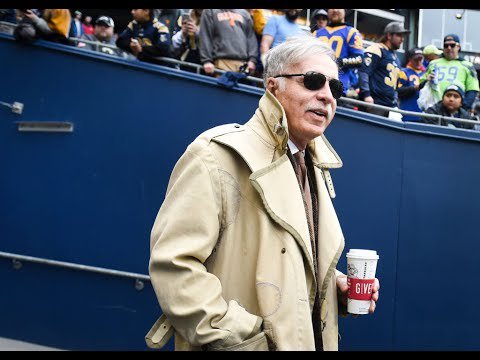
For some years now, Arsenal Football Club has been in an unusual ownership position. Two billionaires own 97.13% of the shares between them. Stan Kroenke, an American, is the majority shareholder with 67.09%, while Russian oligarch Alisher Usmanov has 30.04% to his name. In a kind of throwback to a world we had left, the two men were involved in a football ownership version of the cold war.
The American refused to allow his Russian counterpart onto the board, thus rendering Usmanov’s stake useless in terms of influence and power. The metals and technology magnate made offers to buy out Kroenke but was rebuffed, and in the end he has realised it is pointless to cling on to his stake in the club. Stymied by the fact that nobody else was going to buy his share to be similarly frozen out, he has made the decision to sell to Kroenke for about £600m. Usmanov’s profits are in the hundreds of millions based on his initial investment.
It’s not a terrible outcome for him, but it is a serious concern to Arsenal fans who now face the prospect of seeing their club privately owned by one man. And it should be of concern not just to those who follow Arsenal but to football fans in general. Once they are bought, assets can be stripped or clubs allowed to fall in to disrepair, with nothing the fans can do to stop it. It’s very much a worst-case scenario, but when it all goes wrong – as it has at Coventry, which is owned by a London-based hedge fund – the impact on a club and a community can be devastating.
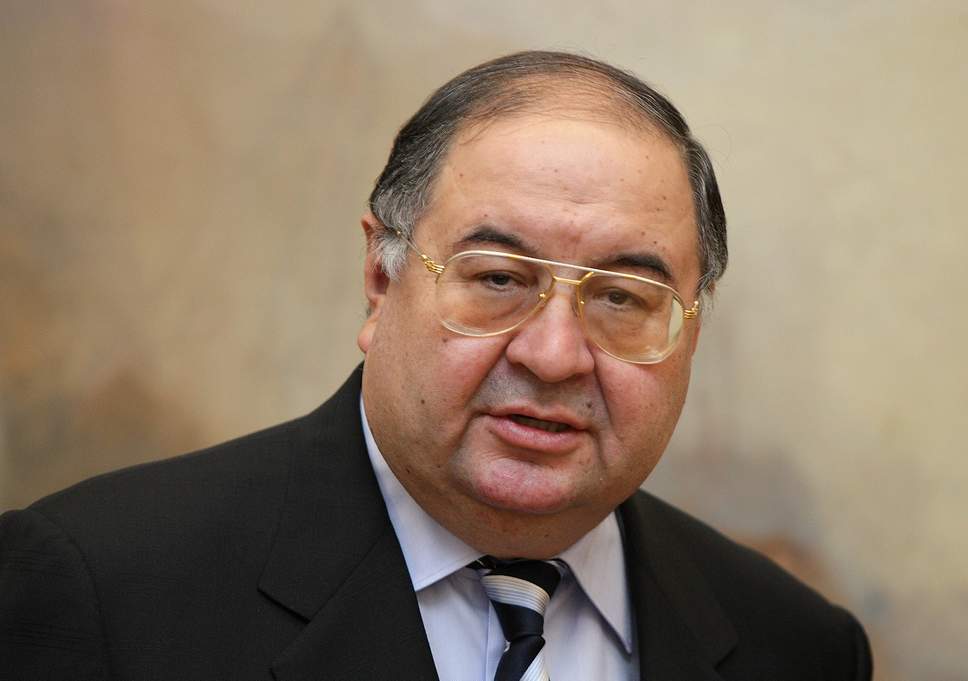
Alisher Usmanov
Once Kroenke has Usmanov’s shares stock market rules will allow him to make a compulsory purchase of all remaining shares, thus giving him 100% ownership. That means what little transparency there has been up until now will be gone. The AGM, at which shareholders – many ordinary fans who bought a single share years before the current boom in prices – could at least express concerns about the running of the club, will no longer be held. The detailed public accounts that allow people to see where the money is going will no longer be published. It will cast a veil over Arsenal and KSE (Kroenke’s investment holding) can do what it likes with its asset. Any sense of custodianship over a local asset will be dead.
KSE has funded the large part of the offer to Usmanov with a loan from Deutsche Bank, and although they say in their statement to the stock exchange that this is “not being funded by way of any debt finance”, nobody would be any the wiser if, after he assumes full control, Kroenke leverages the value of Arsenal to service that loan.
Not once in the 11 years since Kroenke first bought shares in the club has this billionaire put a single penny into the team. Arsenal have famously been run as a self-sustaining business, spending only what they earn – and there’s something to admire about that. In fact, far from putting money into the team, he has actively taken money out, twice taking payments of £3m for “consultancy services”, until fan disquiet ensured that those payments stopped.
With no AGM, no public accounts, and nobody able to hold him to his responsibilities, there’s nothing to stop Kroenke making similar payments or taking fees in the future. Of course that has to be balanced with the obvious need to run Arsenal in a way that doesn’t negatively impact on its value and thus Kroenke’s investment, but when your club becomes just the latest addition to a wealthy man’s portfolio it’s hard not to worry.
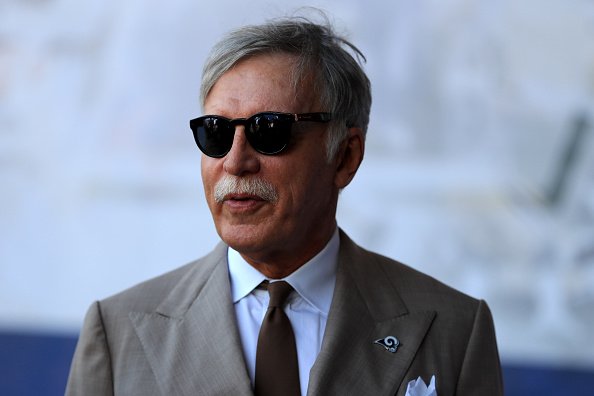
Stan Kroenke
Kroenke has been the majority shareholder since 2011, but there has been almost no meaningful engagement with fans. With TV deals providing vast amounts of income, Arsenal under Kroenke haven’t just coasted along, but gone backwards. They no longer play Champions League football, the club is not as attractive as it once was, and even with a new coach after the departure of Arsene Wenger, it feels as if there’s a huge amount to do to make meaningful progress on the pitch. Unless the American actually puts some of his money where his mouth is, it will be an uphill struggle. And a fanbase who were not quiet when it came to letting a legendary figure like Wenger know what they thought, will certainly be forthright in their views.
The question is whether Kroenke, on the other side of the Atlantic, will actually care. From the evidence we have seen until now, the chances are he won’t, and even if fans find their voice the club’s owner doesn’t have to listen.
The Premier League brought about a sea change in English football, with fans becoming consumers or customers, and the clubs themselves assets for rich businessmen to snap up. Fifteen of 20 Premier League clubs now have offshore owners. Arsenal was traditionally known as the Bank of England club. The Deutsche Bank-funded KSE Investment club doesn’t have the same ring.
-
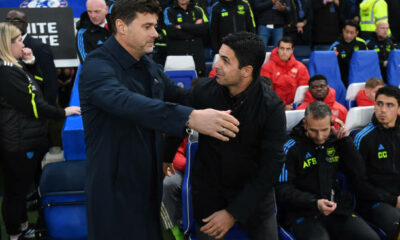
 News2 days ago
News2 days agoArsenal vs. Chelsea: Predicted Lineup and Tactical Approach for Crucial London Derby
-

 News17 hours ago
News17 hours agoREVEALED: Martin Odegaard’s impressive statistics against Chelsea revealed
-
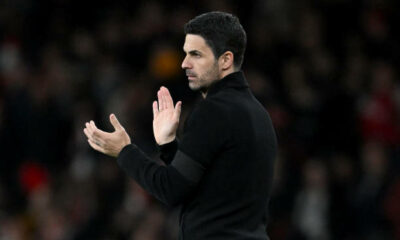
 News15 hours ago
News15 hours agoArteta reveals the simply ‘tremendous’ Arsenal player in their win over Chelsea
-
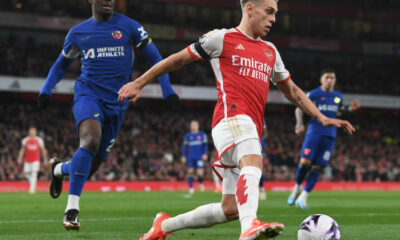
 News13 hours ago
News13 hours agoLeandro Trossard achieves incredible record after win over Chelsea
-
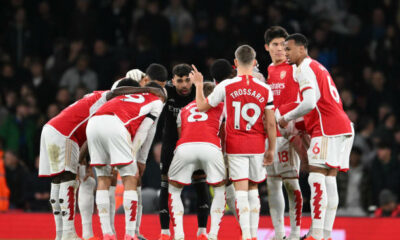
 News10 hours ago
News10 hours agoREVEALED: One of the surprising thing behind Arteta’s Arsenal success this season

